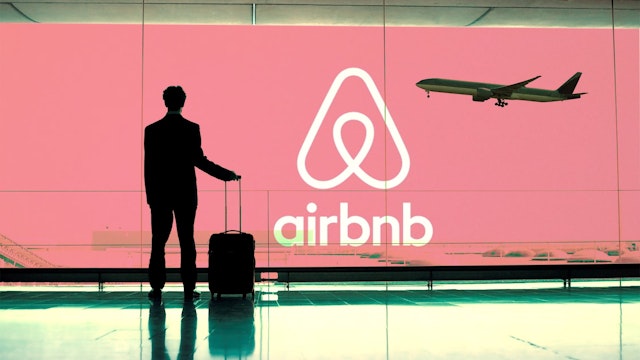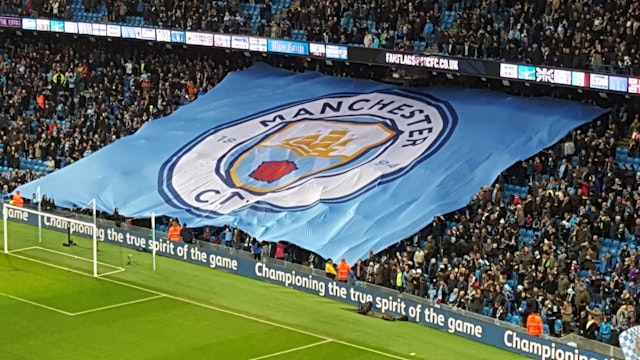From Ubereats and Airbnb to Alibaba and Barbie: The Drum’s New Year Honours 2016 look at the top brands of 2016
Uber’s tentacles latched onto the growing taste for food on demand; Manchester City FC gave fans control over stadium cameras; and the NBA moved its all-star game…It’s been a big year for brands evolving their relationship with consumers.
Brand with moxie
UberEats

The unstoppable force that is Uber decided 2016 was the time to shake up the food delivery service, launching a rival offering to the likes of Deliveroo and Just Eat to take advantage of the ever-ballooning appetite for food on demand.
UberEats hit North American shores first, followed by major European cities. If you’re not one of the 1.5 million Uber users with access to UberEats in London, the service offers hungry Londoners food from more than 500 restaurants across the capital, with the aim of delivering it inside 30 minutes. UberEats has stated its ambition to expand aggressively across the UK, making it a brand to keep an eye on in 2017.
First brand likely to land on the moon
Alibaba
While we don’t actually think a brand will open up shop on the moon in 2017, some brands feel unstoppable. Alibaba had a very good 2016 (apart from a few hiccups with anti-counterfeit groups), culminating in a spectacular crescendo at its annual 11.11 Festival event, formerly known as Singles Day.
The November event, with its Katy Perry-hosted gala, an eight-hour live-streamed fashion show, VR and AR, was a sign of the brand’s global ambitions. This can be no better explained than by Alibaba’s chief marketing officer Chris Tung, who told The Drum that he wanted 11.11 to eventually be as big as Christmas.
Brand pivot
Airbnb

At the start of 2016, Airbnb was best known as an alternative accommodation service, but fast-forward 12 months and chief marketing officer Jonathan Mildenhall has come a long way in spearheading its vision to become a ‘community-driven superbrand’. The platform has evolved from a booking service into content curation, underpinned by a desire to be part of a holidaymaker’s entire travel experience.
At Cannes Lions festival, Mildenhall said he wanted Airbnb to be seen as a media owner, a commitment cemented with the launch of the Trips app, offering an in-depth holiday service, from experiences to gift guides. In November 2016, the company also teamed up with Hearst to produce a magazine, with content penned by Airbnb hosts and regular travellers.
Brand you haven’t heard of but will
Patanjali
A handful of markets have such enormous domestic scale that brands can exist happily, generating millions in sales, while the rest of the world is quite oblivious. China and the US are the two obvious global behemoths of domestic scale, but elsewhere India, Indonesia and the Philippines have millions of consumers and are quietly harvesting home-grown brands that could tip into global notoriety.
Indian FMCG business Patanjali is starting to fend off global rivals, primarily because of a confidence gained from really understanding the nuances of its home customer-base. Patanjali is set to make more than $1bn in sales before the end of fiscal 2017, and is therefore unlikely to be famous in only its home country for much longer.
Leap of faith
Mondelez
Few brands would like to hold the life of a person in their hands live on TV, but Mondelez did just that when its gum brand Stride and US skydiver Luke Aikins created a show around the daredevil’s attempt to jump a record 25,000 feet without a parachute. Thankfully Aikins landed safely in a net, and Mondelez’ leap of faith paid off when the show, titled Stride Gum Presents Heaven Sent, generated more than 700 press hits and 500m impressions internationally.
The stunt was part of the FMCG giant’s new media-monetisation model, which has seen it partner with Fox and Buzzfeed to create bigger and better content to combat the ad malaise and rise of ad blockers.
Through more innovative content, Mondelez hopes to get past the current ad model, which the company’s head of content and media monetisation Laura Henderson called “phony”. [It has since been announced that Henderson is to join BuzzFeed.]
Brand turnaround
Barbie

Barbie shape-shifted with the times in April 2016 when Mattel gave the iconic doll what it described as a “real-world makeover”. For the first time ever, the toymaker literally changed the face of Barbie, adding three new body shapes and seven new skin tones to its range to make the dolls “more reflective of the world girls see around them”.
Marketers mused whether the makeover could offset the brand’s declining sales – a year-on-year dip of 14% in 2015 to £302m. It would seem Mattel’s efforts have paid off: during 2016, Barbie’s sales climbed, jumping by 17% year-on-year to $350m in the third trading quarter, following on from a 23% gain in the second quarter.
The results came after the firm also changed its marketing strapline to ‘You Can Be Anything’ to position itself as a champion of young women.
The comeback award
Adidas
In 2016, Adidas reclaimed its position as the second-biggest-selling sports brand in the US after overtaking rival Under Armour. Adidas’ new chief executive, Herbert Hainer, credited much of the turnaround to handing its brand managers more power and responsibility, but it was the company’s US president, Mark King, who helped reposition the brand more with running and basketball, as well as placing a greater focus on pushing its stylish everyday wear “originals” business.
Behind the scenes, the brand has gone to great lengths to be far more ‘personal’ than its competitors in Nike and Under Armour through its dark social experiments, which are providing it with a greater understanding of how key consumers tick.
Brand taking a stand
The NBA
North Carolina’s controversial ‘Bathroom Bill’, HB2, described as discriminatory against the LGBTQ community, has caused all kinds of problems for the state. Companies are threatening to either leave the state or nix investment — and the National Basketball Association (NBA) had the good sense to move its annual NBA all-star game from Charlotte, North Carolina to New Orleans. The NBA has tremendous power and is wielding it the right way here. Enough is enough, and taking away $100m in economic impact will hopefully send the right message.
Most innovative sports brand
Manchester City

Few football clubs in the world have been as strategic in building their sponsorship portfolio as Manchester City. The club has strengthened its innovation ambitions through tech-focused partnerships, including a hackathon that provided it with unique insights into the best build of its digital platforms.
The Premier League club was the first to trial live virtual reality broadcasts of a league game through its partnership with LiveLike VR and Sky. It also partnered with Ideas Britain to help create concepts that could change how fans interact with football. This led to the plan to build an in-stadium mobile app called Snaptivity, allowing fans to focus stadium cameras on themselves and friends during match highlights to create an ‘event triggered extended selfie’.
The club also partnered with German software specialist SAP to create interactive digital touch screens around the stadium for fans on match days.
Most explosive product launch
Samsung Galaxy Note 7
After exploding in the smartphone industry with the launch of the Samsung Galaxy Note 7, Samsung was left doing just that – exploding. When one user posted a video on YouTube of the smartphone after it had blown up and caught fire, more people started to share their issues across social media.
Samsung quickly recalled the detonating mobile phones, taking extra precaution by sending out fireproof boxes and protective gloves. It said the issue was the phone battery, with users warned against travelling with the handsets. The brand has since sought a lead creative agency in Europe to help rebuild its mobile phone identity.
Brand to remember for the wrong reasons
Sports Direct
Sports Direct made headlines for all the wrong reasons in 2016. An exposé into Mike Ashley’s retail chain published in December 2015 revealed appalling practices at its warehouse and back offices, including dubious pricing strategies, harsh disciplinary measures and underpaying staff.
Iain Wright, chairman of a parliamentary investigation, described Sports Direct’s working practices as “closer to that of a Victorian workhouse than that of a modern, reputable high-street retailer”.
In addition to seeing profits fall by around 20%, the retailer was ordered to back pay staff years of underpaying them, costing it more than £1m.
You can read more New Year Honours here.

